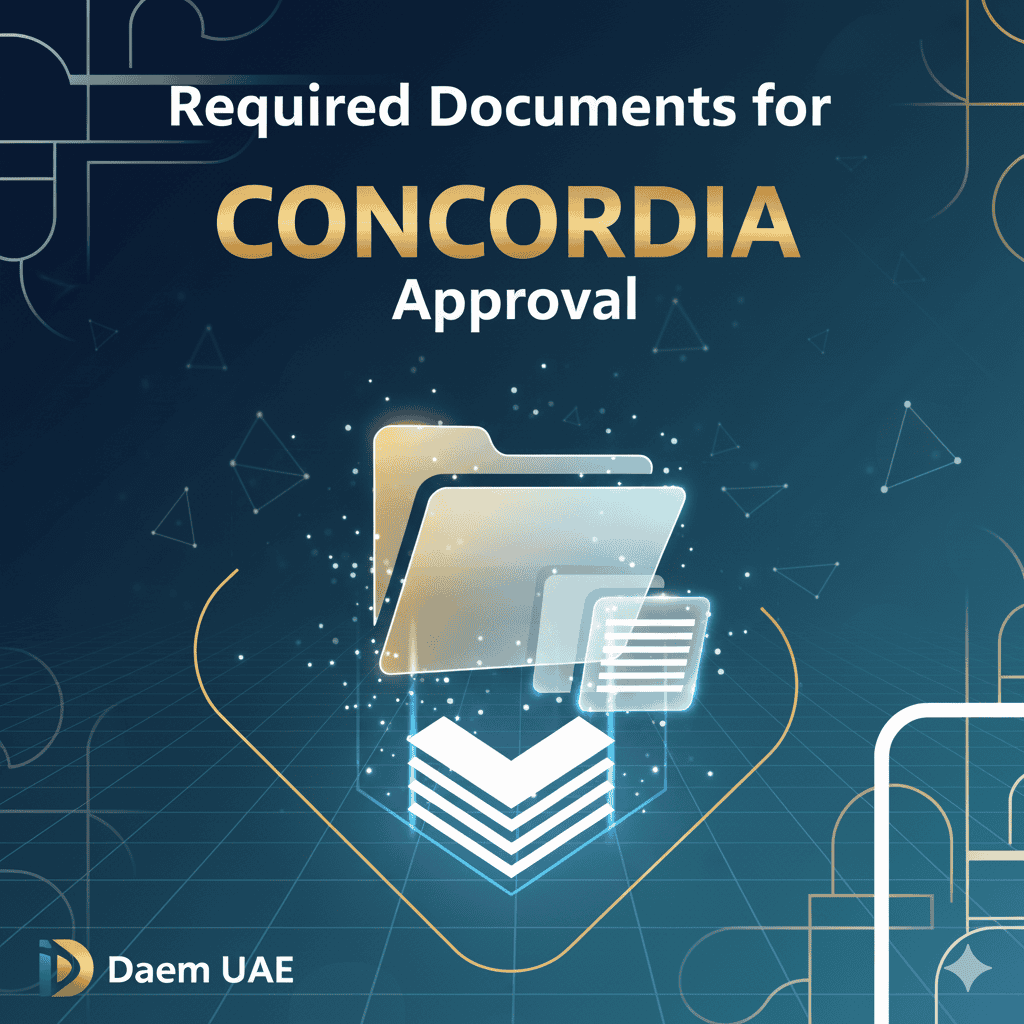In a city as development-driven as Dubai, the real question isn’t Is your project ready to start? But do you have the correct authority approval?”
Because it’s not only about where your project is located, it’s about who regulates that area, what type of activity you’re doing, and how extensive the modifications are.
While the Dubai Development Authority (DDA) issues construction and planning permits for large-scale development projects, Concordia is a facilities management entity that regulates interior fit-out modifications within JLT under the DMCC Free Zone.
This guide will clearly explain the difference between DDA approval AND Concordia approval, so you can move forward with your project in Dubai with clarity and confidence.
Start your project with confidence.
Contact Daem Contracting today for a free consultation to determine the right approval for your project in Dubai
Table of Contents
What Is the Difference Between DDA Approval and Concordia Approval?
The difference between the Dubai Development Authority approval and Concordia LLC approval lies in the geographical jurisdiction of each authority, the regulatory nature of the entity issuing the approval, and the licensing procedures and requirements involved.
The distinction also extends to the type of projects and commercial activities that each authority supervises within its respective area of responsibility.
The Dubai Development Authority (DDA) is a government entity that oversees major freehold development zones such as Dubai Internet City and Dubai Media City. It issues official construction permits, design approvals, and building modification authorizations for large-scale projects.
Meanwhile, Concordia is a private facilities management company appointed by the Dubai Multi Commodities Centre (DMCC). It is responsible for overseeing facility operations and ensuring that fit-out and maintenance works in residential and commercial projects within specific areas, such as Jumeirah Lakes Towers (JLT), comply with all health and safety standards.
Below is a comparison table showing the key differences between DDA approvals and Concordia approvals:
Criteria | DDA Approval | Concordia Approval |
Issuing Authority | Government body (Dubai Development Authority) | Private facilities management company |
Jurisdiction | Multiple free zones across Dubai | Jumeirah Lakes Towers (JLT) only |
Approval Requirements | Technical and engineering documents submitted directly to DDA | Requires initial DMCC approval, followed by submission of technical and procedural documents to Concordia |
Project Type | Large-scale construction and development projects | Interior renovations and modifications within existing units |
Need help identifying which approval applies to your next project?
Our specialists guide you step-by-step on how to get DDA Approval based on your project type and location.
1. How Does the Regulatory Nature Differ Between the Dubai Development Authority (DDA) and Concordia in Dubai?
The Dubai Development Authority (DDA) differs from Concordia in that DDA is a high-level, government regulatory authority with autonomous powers, responsible for setting planning frameworks, urban masterplans, and issuing the final project permits and approvals.
On the other hand, Concordia Company represents an executive service administration entity operating within the regulatory framework supervised by DMCC (Dubai Multi Commodities Centre). Concordia is responsible for facility management inside JLT, including overseeing daily operations (such as disinfection services) and utilities management (such as electrical services), to ensure safety compliance inside Jumeirah Lakes Towers.
2. What Is the Difference in Geographic Jurisdiction Between DDA and Concordia Approvals in Dubai?
The difference in the geographic scope between DDA approvals and Concordia approvals is that Dubai Development Authority (DDA) approvals cover a wider free zone area in Dubai, such as IMPZ (International Media Production Zone) and d3 (Dubai Design District).
While Concordia approvals are limited only to the residential and commercial community of Jumeirah Lakes Towers (JLT) and do not extend to any other areas outside this community
3. What Are the Requirements for Obtaining DDA permit Compared to Concordia permit?
If you are in DDA zoning and you want to apply for a DDA license, you need to submit the documents required by DDA, which include planning documents, architectural drawings, structural drawings approved by a licensed engineer, and NOCs from other related authorities, such as Civil Defense approval.
If you are in the JLT area and you want to apply for Concordia approval, you must first get DMCC approval by submitting the trade license and the NOC from the owner, then Concordia will review these documents and conduct a site inspection to make sure it complies with safety standards, and then they will issue the final approval
4. How Do Large-Scale DDA Projects Differ from Interior Works Supervised by Concordia in JLT?
Dubai Development Authority (DDA) supervises major development projects that affect infrastructure and general urban planning. This includes new construction work, integrated urban planning, and approving architectural and engineering designs for areas and buildings within its jurisdiction. While Concordia has a more limited and specialized scope inside existing buildings and facilities. Concordia supervises internal works and renovations such as space re-division, electrical works, plumbing works, and HVAC systems, and its authority does not extend to major structural or urban planning changes which fall under the jurisdiction of Dubai Development Authority
Understanding the Regulatory Authority Is the Key to Your Project’s Success in Dubai
In a fast-moving city like Dubai, the success of any project, whether a major urban development or a simple interior renovation, depends on choosing the right regulatory authority from the very first step.
Understanding the difference between DDA approval and Concordia approval not only saves you time and effort but also protects your investment from delays, rejections, and penalties, while ensuring your project meets the highest standards of safety and quality.
No matter the type or stage of your project, having an experienced partner like Daem Contracting can make all the difference between complex procedures and fast results.
Our team manages every aspect of the approval process, from technical analysis and planning to direct coordination with DDA, DMCC, and Concordia, so you can start your project with clarity, confidence, and complete compliance.
Frequently Asked Questions:
1- How does the regulatory approach differ between Dubai Municipality (DM) and Dubai Development Authority (DDA)?
Dubai Municipality (DM) regulates construction according to the Dubai Building Code with strict safety and infrastructure standards across the city. Dubai Development Authority (DDA) follows its own technical guidelines aligned with the Dubai Building Code, but allows more flexibility to encourage innovation within its managed zones. This distinction defines a core aspect of the Difference Between DDA Approval and DM Approval
2- Can a company licensed under DDA operate or apply for approvals in JLT (Concordia area)?
No, a company licensed under the Dubai Development Authority cannot apply for approvals within the JLT district, as the area falls under the jurisdiction of DMCC and its facility management arm, Concordia. Each zone has its own governing regulations and approval systems that are not interchangeable.
3- Can interior modifications inside JLT apartments or offices be done without Concordia approval?
No, all interior works including partition changes, MEP modifications, or ceiling works, require Concordia approval before starting. Skipping this process can lead to fines or delays in re-occupation permits within JLT buildings




Comments are closed